On 22 and 23 November, the second of the training workshops addressed to the population of our villages was held in Ramales de la Victoria (Cantabria).
This second workshop, divided into two days, was especially aimed at municipal politicians (mayors, councillors, presidents of associations of municipalities, etc.) and the technical staff of our small town councils, although it was also open to other people interested in acquiring basic notions regarding EC, both from our area and from other parts of the autonomous community (Laredo, Selaya or Santander, for example).
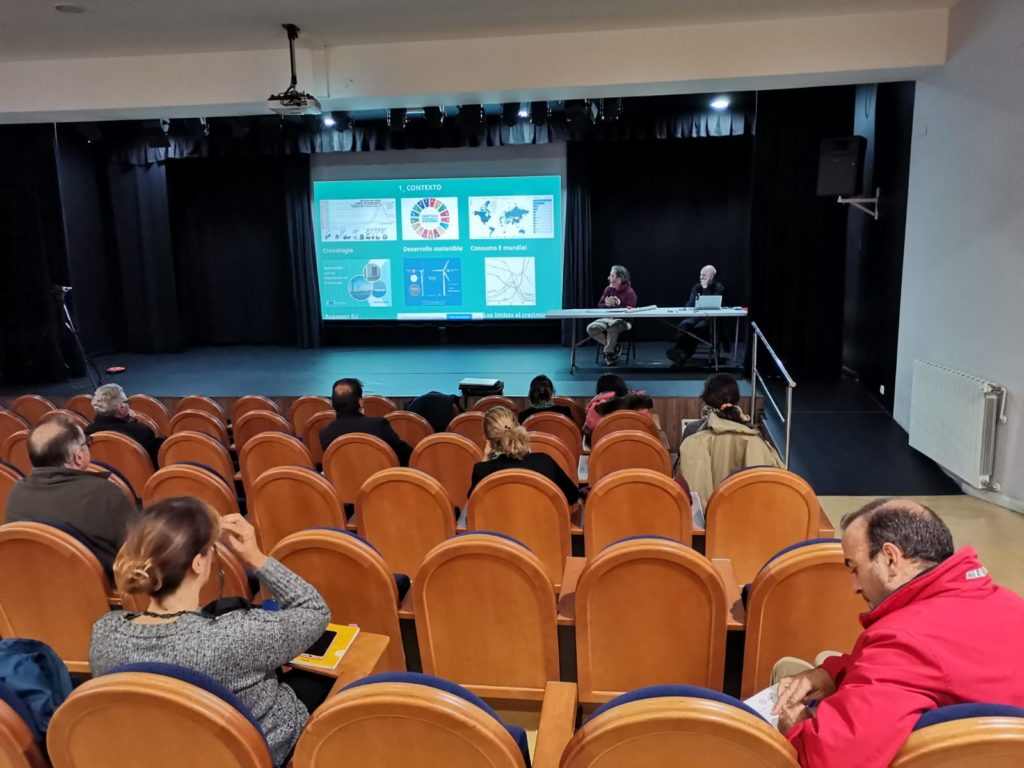
Both days opened with the presentation of the project, the Erasmus+ programme in which it is framed, the partner associations, as well as the objectives and the main lines of action. Alejandro Manteca, member of Asonautas, then gave an introduction to the European and national context of energy communities, the key concepts that are necessary to know, and relevant cross-cutting issues such as, for example, energy poverty.
After this common content, both days gave way to the presentation of concrete experiences, from whose successes, mistakes and difficulties so much can be learned. On Tuesday 22nd, Oihan Mendo, Mayor of Gares-Puente La Reina (Navarra), presented the municipality’s track record in energy matters over the last eight years, and the constitution of Gares Energía, the renewable energy citizen community created in the village.
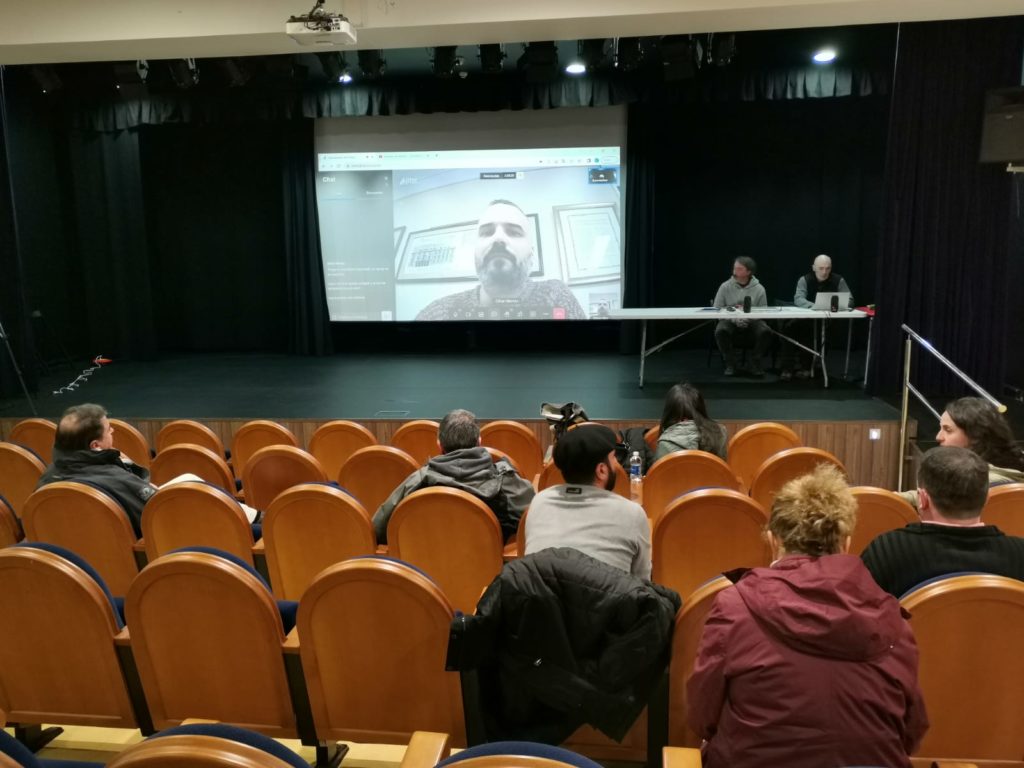
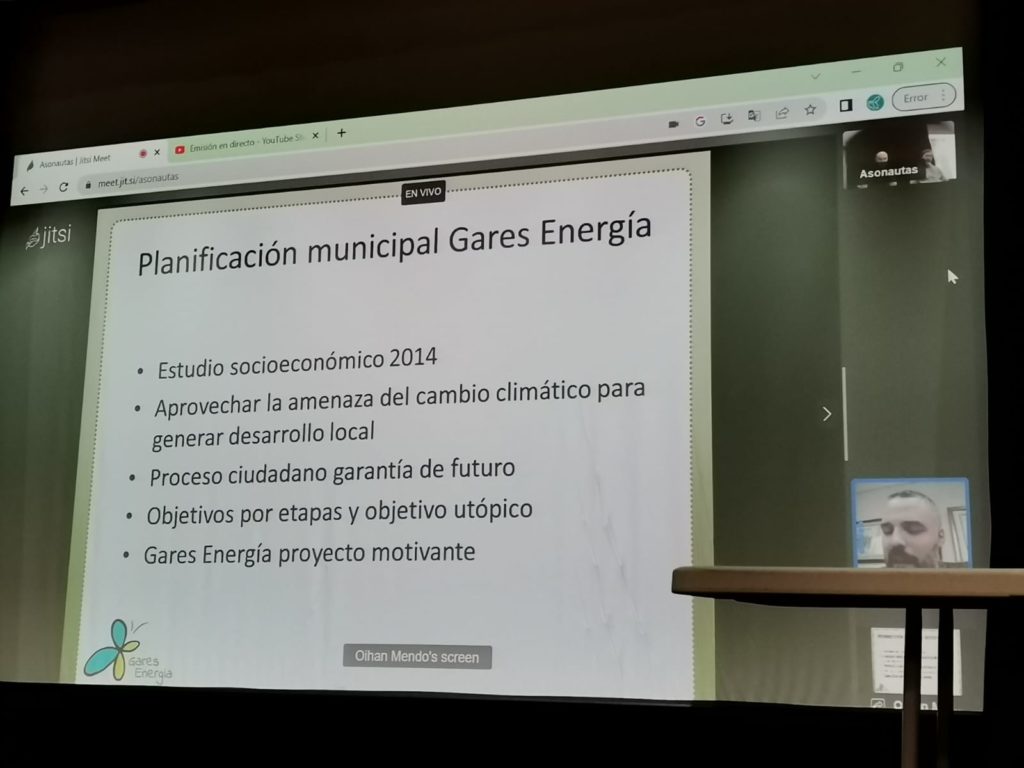
Aitor Lobato, a resident of San Roque de Riomiera, then went through the proposal submitted to the IDAE’s DUS 5000 programme, which provides aid for investments in unique local clean energy projects in municipalities facing demographic challenges. The proposal, San Roque Juturu, has involved a huge effort on the part of several residents of the municipality, who, with the support of the city council, set to work to design and draft a “Plan for resilience and rural sovereignty (energy, food and social services) Agenda 2030”. Although the plan includes several lines of work, Aitor focused on the first of them, energy recovery in the supply network.
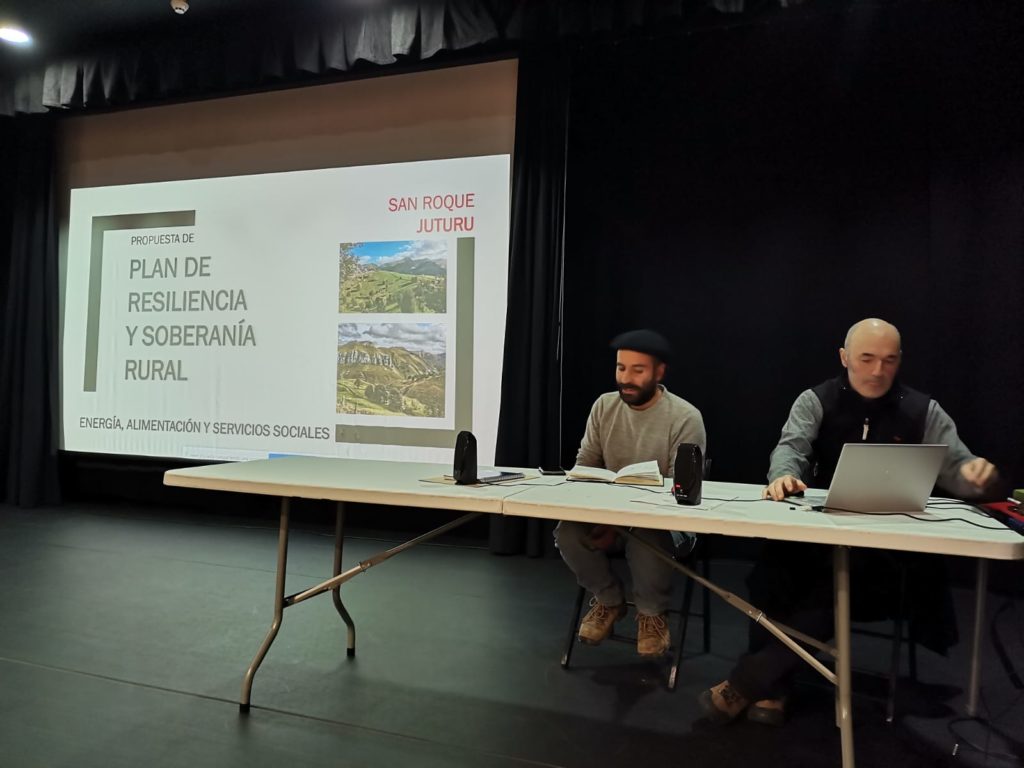
The second day featured the participation of Idoia Zulet, from the law firm Arankoa (Navarre), who has accompanied several initiatives for the creation of energy communities in Navarre, helping to understand the legal aspects of this figure.
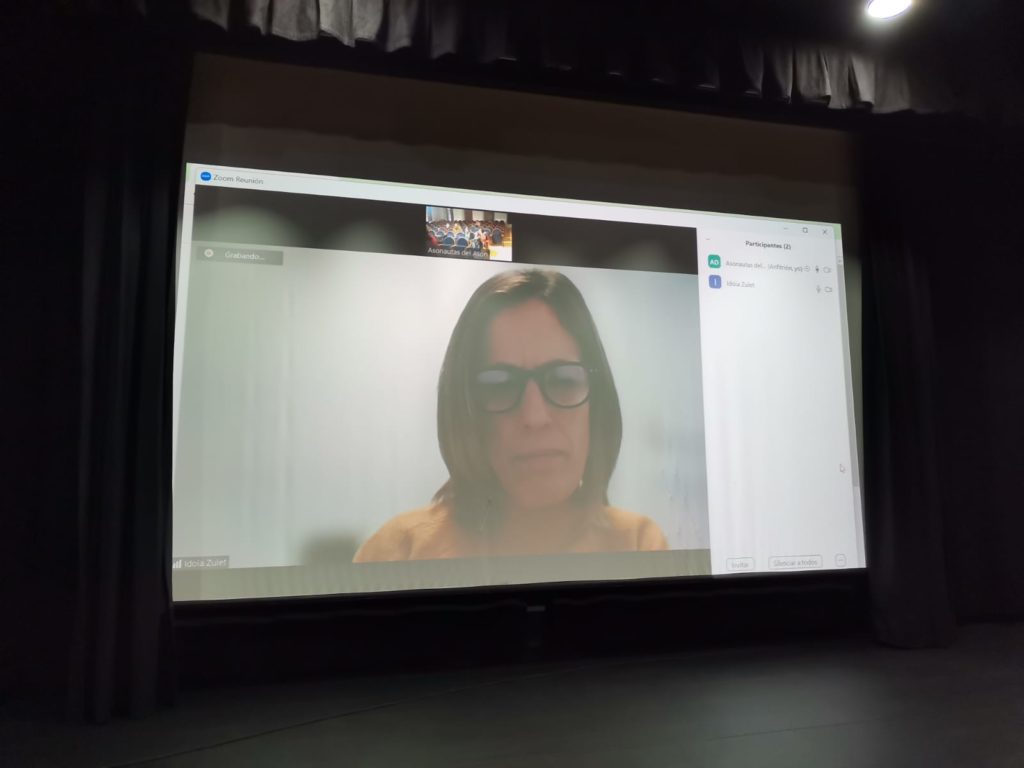
This second day ended with a dynamic in working groups that encouraged collective reflection on the challenges posed by the creation of energy communities in rural areas. The dynamic was followed by a colloquium-debate among all those present.
